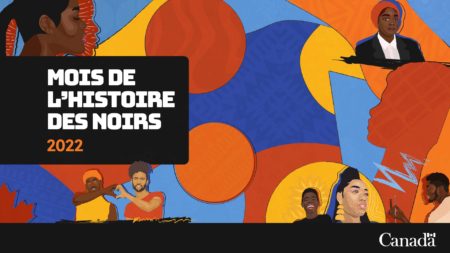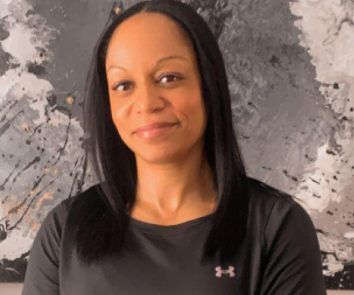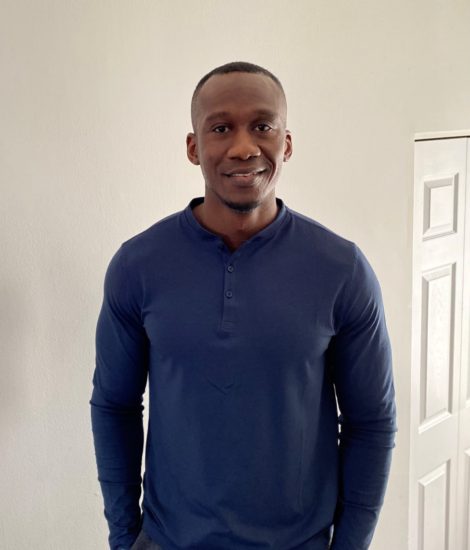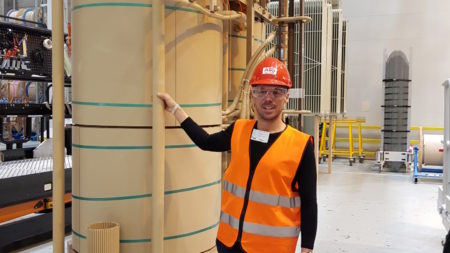Black History Month: Embracing Diversity and Recognising Inclusion

In 2007, Québec officially recognised February as Black History Month. At Rio Tinto, we take this commemorative occasion as a chance to highlight diversity within the organisation. We also recently created a regional Diversity and Inclusion Committee, as part of our ongoing efforts to embrace differences and fully recognise inclusion.
Diversity and inclusion allow us to join forces and work together. By welcoming difference as a beautiful thing, we empower our employees to thrive and be heard in a respectful, judgement-free environment.
Nadine Belley-Traoré, Advisor, Communities and Communications at Rio Tinto, is a member of the committee. Born to a Malian father, who immigrated to Quebec in the early 1970s, and a mother from Quebec, Nadine embodies the very diversity that Rio Tinto hopes to promote.
“The committee is in its infancy, but for the moment, we have very high hopes,” she says. “The goal is to create racism-free workplaces where everyone feels at home. In my opinion, any self-respecting committee must include people who represent diversity. My contribution is a humble one, but I am speaking from personal experience, because I have faced racism myself. Maybe my story can provoke thought and resonate with others who have had similar experiences.”
For a long time, Nadine struggled with her identity and heritage, often feeling like a stranger in the place where she was born.
“Having mixed heritage, it was hard for me as a child to identify with Quebec,” she says, “because I had this feeling of not belonging, and it was impossible for me to blend into the crowd. It was only later, when I went back to Mali at 18 years old, that I got to know my own roots. It helped me to see that I did have a rightful place. My heritage is important to me today—I am mixed, and I hold within myself the best of both nationalities, and I’m proud of that.”

Willy Ntetu, Section Leader, Engineering Services for Power Operations, has been at Rio Tinto for four years and is also proud to be a part of this inclusive company. Born in Quebec to a Congolese father and an Ivorian mother, Willy has always fit in well in his social circles and workplaces.
“Although I’m a fairly reserved person, I have always liked being a part of a group. It’s in my nature to gravitate towards people and to make sure that everyone is happy. That has helped me fit in quickly with my work team. Today, I feel fulfilled in my work and accepted for my value and my skills, no matter my heritage or the colour of my skin. I think it’s important to highlight inclusion and that’s why I got involved in the Caregiver Committee, which helps people going through difficult times, some of whom might be suffering in silence. Inclusion means accepting everyone and recognising that we all have different baggage, and at a company like Rio Tinto, I feel that it is possible to do that.”

Celebrating Diversity Worldwide
In 1926, Dr. Carter G. Woodson announced the first Negro History Week. The celebration took place during February, in honour of Frederick Douglass and Abraham Lincoln, two major figures of the abolitionist movement born in that month.
It was not until 1976 that Negro History Week became Black History Month, as part of the United States Bicentennial celebrations. The event was intended to commemorate Black history more accurately and objectively. Today, it is celebrated all over the world, including the larger urban centres of North America, Africa, France, the Caribbean, Central America and South America.
Here in Quebec, the National Assembly adopted a bill to recognise February as Black History Month on 23 November 2006, in an effort to highlight the historical contributions of Black communities to Quebec society. The bill was passed into law on 1 February 2007. Today, the celebration is a chance for all Quebec society to officially express its willingness to shine a light on the essential contributions of Black people and their communities to the development of Quebec. Black History Month is recognised annually in Quebec and in many other areas of the world by various public, private and community institutions.
Source (French only): Ministère de l’Immigration et des Communautés culturelles


